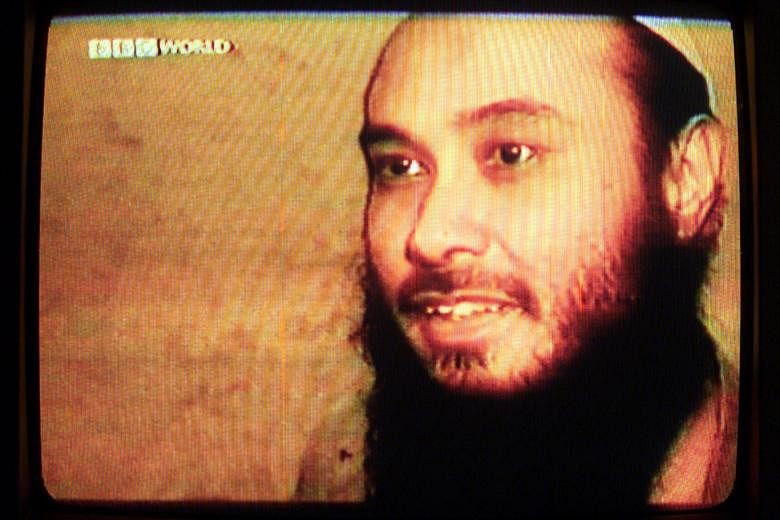SINGAPORE -Days after the Sept 11, 2001, terror attacks on America were linked to Osama bin Laden, an unguarded boast by a radicalised renovation contractor that he had met Osama put the Internal Security Department (ISD) on his tail.
Less than three months later, on the night of Dec 8, a Saturday, dozens of officers mounted an operation, and by Sunday, six members of a militant group were arrested. Further arrests that month led to a total of 13 active JI members detained.
Since that first wave of arrests, 56 men have been detained for their involvement in the JI.
Singapore has had past brushes with terror, including the Emergency and Konfrontasi. But the JI episode reshaped the way Singapore fights terrorism, as the extent of the terrorists' ties to regional radical groups and how far developed their plots were began to come to light.
In exclusive interviews with individuals intimately involved in the episode, including former detainees and ISD officers, they recount how the clandestine JI network here was discovered, the race to piece together imminent bomb plots months away from fruition, and the long, hard fight to dismantle the local network.
An ISD officer recalled: "The JI operation did not simply end with the two waves of arrests between 2001 and 2002. Our mission to eliminate the local JI network took more than a decade, as we tracked the JI fugitives across South-east Asia."
After 9/11, the ISD intensified its operations to determine whether there was an imminent threat against Singapore.
Part of this was outreach sessions to various communities here, both to address concerns in the wake of the unprecedented attack committed in the name of religion, and to detect any suspicious activities or individuals, said Deen (not his real name), an ISD officer who was involved in these engagements.
Within a fortnight, ISD received a tip-off about Mohammad Aslam Yar Ali Khan, a Singaporean of Pakistani descent. There were just two crumbs in the tip: Aslam had claimed he had fought the Soviets in Afghanistan, and that he knew the leader of Al-Qaeda.
"When we got this tip-off, all of us in ISD were still reeling from the shock at the scale and brutality of the 9/11 attacks," recalled Deen.
"We wanted to ensure that a terror attack would not take place in Singapore (and) that was why we took the tip-off very seriously, and sprang into action."
Officers began to watch Aslam and his associates to ascertain whether the information was genuine, said Rajah, the pseudonym of a senior ISD operations officer. "Given the backdrop of 9/11, we couldn't rule out anything. So we had to really look at this information, process it carefully, and then decided that it's worthwhile looking at it much deeper," he said.
As officers monitored Aslam and began to piece together his network of frequent contacts, alarm bells began going off. They discovered that his associates were meeting individuals later confirmed to be foreign terror operatives, including Al-Qaeda-JI go-between "Sammy", who is Canadian-Kuwaiti Mohammed Mansour Jabarah, and Indonesian bomb-maker "Mike", or Fathur Rohman Al-Ghozi.
Among them was a Singaporean JI member who Mike had tasked to buy 17 tonnes of ammonium nitrate - used both as a fertiliser, and a key ingredient in homemade bombs.
It later emerged that the plan was to rig up six truck bombs to simultaneously go off at different locations, with the likely targets including Sembawang Wharf, the US Embassy, the American Club, and Yishun MRT station. The group's earlier reconnaissance had confirmed the bus timings for a shuttle service that ferried US Navy personnel to and from the MRT station.
Another fairly well-developed plan was to mimic the October 2000 USS Cole bombing that took place at Aden harbour in Yemen, by detonating a small boat filled with explosives near US ships travelling from Sembawang Wharf, exploiting the narrowest part of the channel to inflict the most damage.
By this time, four tonnes of ammonium nitrate had been procured by Malaysian JI leader and former Malaysian army officer Yazid Sufaat. Meant for Singapore, the chemicals were in Muar, Johor.
While the bomb plots in Singapore would be foiled, ammonium nitrate would subsequently be used to devastating effect by the JI in the 2002 Bali bombings that claimed 202 lives, as well as the 2003 bombing of Jakarta's JW Marriott Hotel that killed 12.
As the ISD kept tabs on the JI members to piece together the network and plans being set in motion, time was not on the agency's side.
Without warning, Aslam left Singapore on Oct 4, 2001, for Pakistan. In November, he was arrested by the Northern Alliance in Afghanistan for suspected links with the Taliban and Al-Qaeda.
When news of his arrest was reported in Singapore on Dec 3, ISD decided it had to act.
Until that point, Aslam's associates were mostly unaware they were being watched.
"We knew that we could not wait any longer. We had to move in, because otherwise, his associates would go underground, or flee the country," said Faisal (not his real name), who led a team of field officers during the operations against the JI network in Singapore. "So we decided to move."
It turned out to be the right call.
A former detainee, Alif (not his real name), recalled that news of Aslam's arrest spread and put JI members here on alert.
"We were worried because it would lead back to (us in) Singapore."


